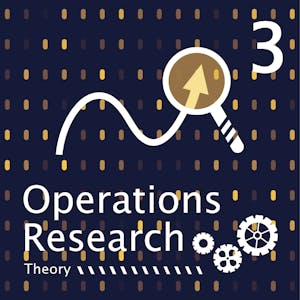Precalculus: Periodic Functions
About this Course
This course helps to build the foundational material to use mathematics as a tool to model, understand, and interpret the world around us. This is done through studying functions, their properties, and applications to data analysis. Concepts of precalculus provide the set of tools for the beginning student to begin their scientific career, preparing them for future science and calculus courses. This course is designed for all students, not just those interested in further mathematics courses. Students interested in the natural sciences, computer sciences, psychology, sociology, or similar will genuinely benefit from this introductory course, applying the skills learned to their discipline to analyze and interpret their subject material. Students will be presented with not only new ideas, but also new applications of an old subject. Real-life data, exercise sets, and regular assessments help to motivate and reinforce the content in this course, leading to learning and mastery.Created by: Johns Hopkins University

Related Online Courses
The Data Analysis specialization will provide a comprehensive overview of various techniques for analyzing data. The courses will cover a wide range of topics, including Classification, Regression,... more
This is a self-paced lab that takes place in the Google Cloud console. In this lab, you will learn and get hands-on practice with the fundamental concepts of Reinforcement Learning.Created by:... more
\"User Interface Design: Principles, Prototyping, Practices\" is a comprehensive course designed to provide foundational knowledge and practical skills in UI design. This course covers essential... more
This course provides an introduction to basic computational methods for understanding what nervous systems do and for determining how they function. We will explore the computational principles... more
Operations Research (OR) is a field in which people use mathematical and engineering methods to study optimization problems in Business and Management, Economics, Computer Science, Civil... more







